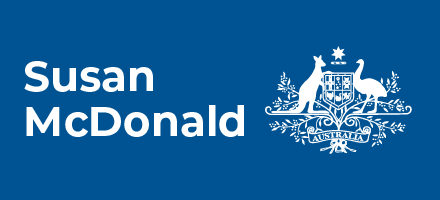PRIME MINISTER – JOINT MEDIA RELEASE – $1.1 BILLION TO SUPPORT MORE MENTAL HEALTH, MEDICARE AND DOMESTIC VIOLENCE SERVICES – 29 SUNDAY 29 MARCH 2020
The Hon. Scott Morrison MP
Prime Minister
Senator The Hon. Marise Payne
Minister for Foreign Affairs
Minister for Women
The Hon. Greg Hunt MP
Minister for Health
Senator The Hon. Anne Ruston
Minister for Families and Social Services
JOINT MEDIA RELEASE
Sunday 29 March 2020
$1.1 BILLION TO SUPPORT MORE MENTAL HEALTH, MEDICARE AND DOMESTIC VIOLENCE SERVICES
More help will be given to millions of Australians battling the devastating impacts of coronavirus with a $1.1 billion package which boosts mental health services, domestic violence support, Medicare assistance for people at home and emergency food relief.
Prime Minister Scott Morrison said more support would be rolling out immediately to deal with the secondary effects of the health and economic crisis caused by coronavirus.
“As we battle coronavirus on both the health and economic fronts with significant support packages in place and more to come, I am very aware many Australians are understandably anxious, stressed and fearful about the impacts of coronavirus and what it brings,” Prime Minister Scott Morrison said.
“We are focused on saving lives and saving livelihoods and this new support package will provide much needed care and help to so many Australians facing hardship at no fault of their own.
“We will get through this crisis by staying together, by supporting each other and ensuring that no Australian, even though we have to be isolated, should have to go through this alone.”
Medicare support at home – whole of population telehealth
To provide continued access to essential primary health services during the coronavirus pandemic, $669 million will be provided to expand Medicare-subsidised telehealth services for all Australians, with extra incentives to GPs and other health practitioners also delivered.
Australians will be able to access support in their own home using their telephone, or video conferencing features like FaceTime to connect with GP services, mental health treatment, chronic disease management, Aboriginal and Torres Strait Islander health assessments, services to people with eating disorders, pregnancy support counselling, services to patients in aged care facilities, children with autism, after-hours consultations and nurse practitioners.
Providing the opportunity to get health services at home is a key weapon in the fight against coronavirus while limiting unnecessary exposure of patients and health professionals to the virus, wherever treatment can be safely delivered by phone or videoconferencing. This will take pressure off hospitals and emergency departments and allow people to access essential health services in their home, while supporting self-isolation and quarantine policies.
The GP bulk billing incentive will be doubled for GPs and an incentive payment will be established to ensure practices stay open to provide face to face services where they are essential for patients with conditions that can’t be treated through telehealth. The new arrangements will be in place until 30 September 2020, when they will be reviewed in light of the need to continue the fight against coronavirus.
Domestic violence support
An initial $150 million will be provided to support Australians experiencing domestic, family and sexual violence due to the fallout from coronavirus.
Google is seeing the highest magnitude of searches for domestic violence help that they have seen in the past five years with an increase of 75 per cent and some services are already reporting an increase in demand.
The funding will boost programs under the National Plan to reduce Violence against Women and their Children including:
• Counselling support for families affected by, or at risk of experiencing, domestic and family violence including men’s behaviour change programs which will provide a short, medium and longer term response to support men.
• 1800RESPECT, the national domestic, family and sexual violence counselling service, which already answers around 160,000 calls a year.
• Mensline Australia, the national counselling service for men that provides support for emotional health and relationship concerns for men affected by or considering using violence.
• Trafficked People Program to support particularly vulnerable cohorts such as victims of human trafficking, forced marriage, slavery and slavery-like practices.
• Support programs for women and children experiencing violence to protect themselves to stay in their homes, or a home of their choice, when it is safe to do so.
A new public communication campaign will roll out to support those experiencing domestic violence over this period and to ensure those affected know where they can seek help.
Minister Payne and Minister Ruston will convene a COAG Women’s Safety Council meeting on Monday to discuss with the states and territories how to best deliver this funding to support local responses to this issue.
Mental health support
An initial $74 million will be provided to support the mental health and wellbeing of all Australians.
The Government’s digital mental health portal, Head to Health (www.headtohealth.gov.au), will be a single source of authoritative information and guidance on how to maintain good mental health during the coronavirus pandemic and in self-isolation, how to support children and loved ones, and how to access further mental health services and care.
A new national communications campaign, delivered in conjunction with the National Mental Health Commission, will provide information about maintaining mental wellbeing, raise awareness of the signs of when you or a loved one needs to get additional assistance, and where to find further information, support and care.
$10 million will be provided to create a dedicated coronavirus wellbeing support line, delivered by Beyond Blue, to help people experiencing concern due to a coronavirus diagnosis, or experiencing stress or anxiety due to employment changes, business closure, financial difficulties, family pressures or other challenges. The Government welcomes an additional $5 million contribution from Medibank to Beyond Blue to support this vital initiative.
$14 million will bolster the capacity of mental health support providers who have experienced an unprecedented surge in call volumes with funding increasing their capacity, including $5 million for Lifeline and $2 million for Kids Helpline. The funding will also bolster other existing services, including digital peer-support to people with urgent, severe and complex mental illness who may be experiencing additional distress at this time.
Health workers, who will be at the frontline of the pandemic, will get dedicated mental health support through digital platforms developed to provide advice, social support, assistance in managing stress and anxiety, and more in-depth treatment without having to attend in-person sessions.
To ensure that older Australians in aged care are not socially isolated despite visiting restrictions, $10 million will be provided to the Community Visitors Scheme. The funding will mean extra staff to train volunteer visitors, who will connect with older people in aged care online and by phone, and assist older Australians keep in touch with the community and loved ones.
To help younger Australians stay on track in their education and training and prepare them for the workforce, $6.75 million will be provided to deliver the headspace digital work and study service and eheadspace. Mentors and headspace vocational specialists working in an integrated team will offer technical and life skills, providing a comprehensive digital support service for all young Australians during the COVID-19 pandemic and after.
For Indigenous Australians, whose elders and communities are particularly vulnerable to the impacts coronavirus, Gayaa Dhuwi (Proud Spirit) Australia will develop culturally appropriate mental health and wellbeing resources. These will be available and easily accessible across a range of platforms, including print, podcast, NITV, Indigenous print media and internet/social media platforms.
$28.3 million will be utilised to continue to deliver psychosocial support to Commonwealth community mental health clients for a further 12 months. This will allow additional time for people with severe and complex mental illness to complete their applications and testing for support under the National Disability Insurance Scheme.
Relief services for vulnerable Australians
An additional $200 million will be provided to support charities and other community organisations which provide emergency and food relief as demand surges as a result of coronavirus.
Given the unprecedented nature of the situation, emergency relief services are being heavily relied upon and this demand will increase.
The Community Support Package will provide flexible funding to boost support to services where demand is quickly increasing, including:
• Emergency Relief which will help vulnerable Australians who need assistance with bills, food, clothing or petrol and increase and retain workforce capacity including volunteers.
• Assistance for food relief organisations to source additional food and transport for emergency relief service providers, and rebuild workforce capacity.
• Immediately scale-up services through the National Debt Helpline — which is often the first point of contact for people experiencing financial difficulties, and to support one-on-one tele-financial counselling.
• Creating a short-form Financial Counselling course through Financial Counselling Australia to train new financial counsellors to boost the workforce, potentially providing hundreds of new jobs.
• Expanding access to safe, affordable financial products through the No Interest Loan Scheme which provides an immediate financial relief alternative to other high-risk, high-interest products such as credit cards and payday loans.
Media Contacts:
Prime Minister’s office: Press Office, (02) 6277 7744
Minister Payne’s office: David Wroe, 0429 531 143
Minister Hunt’s office: James Perrin, 0447 534 427
Minister Ruston’s office: Sheradyn Holderhead, 0418 514 271
The Hon. Scott Morrison MP, Sydney
Press Office of the Hon Scott Morrison MP, Prime Minister, Canberra

